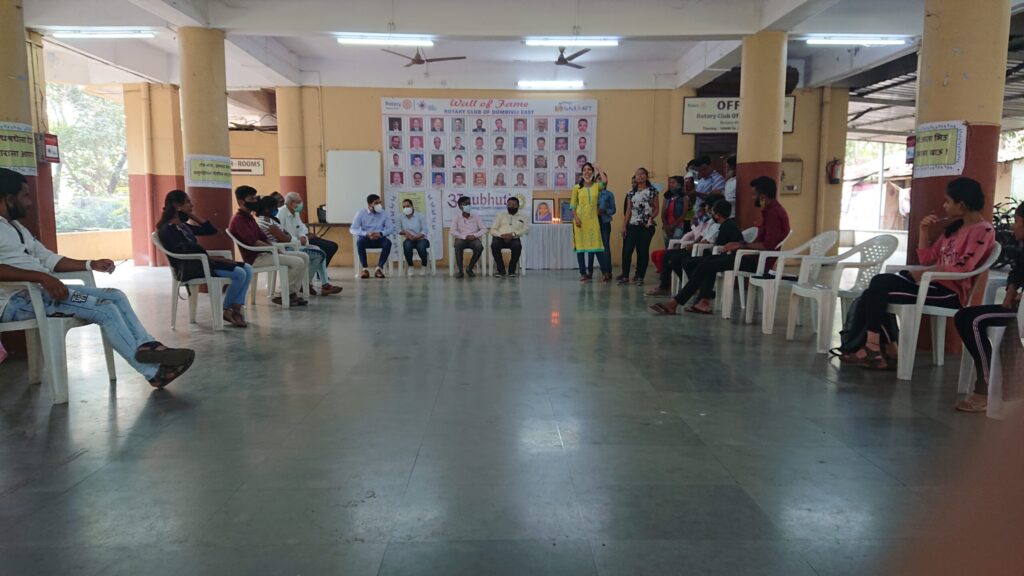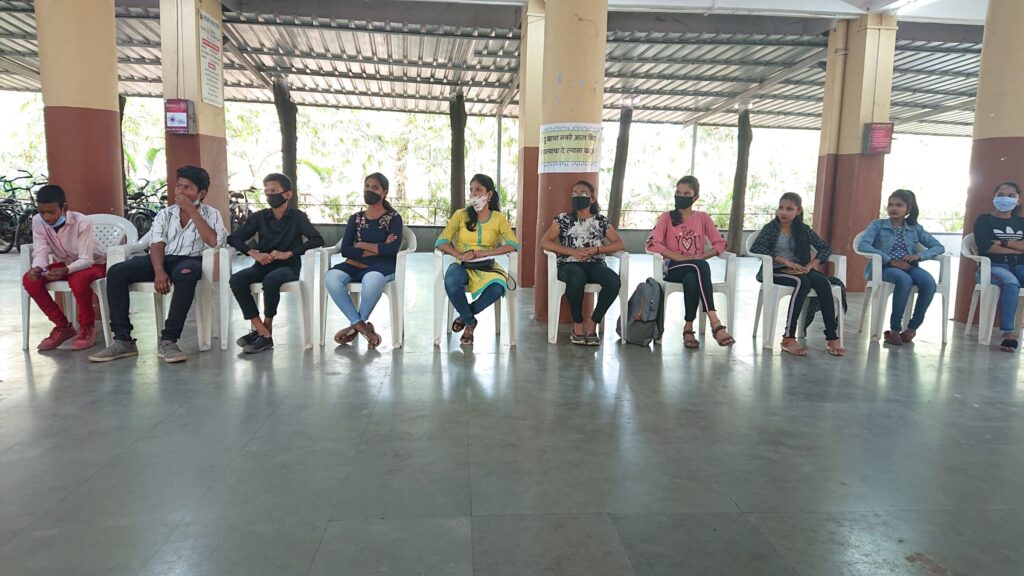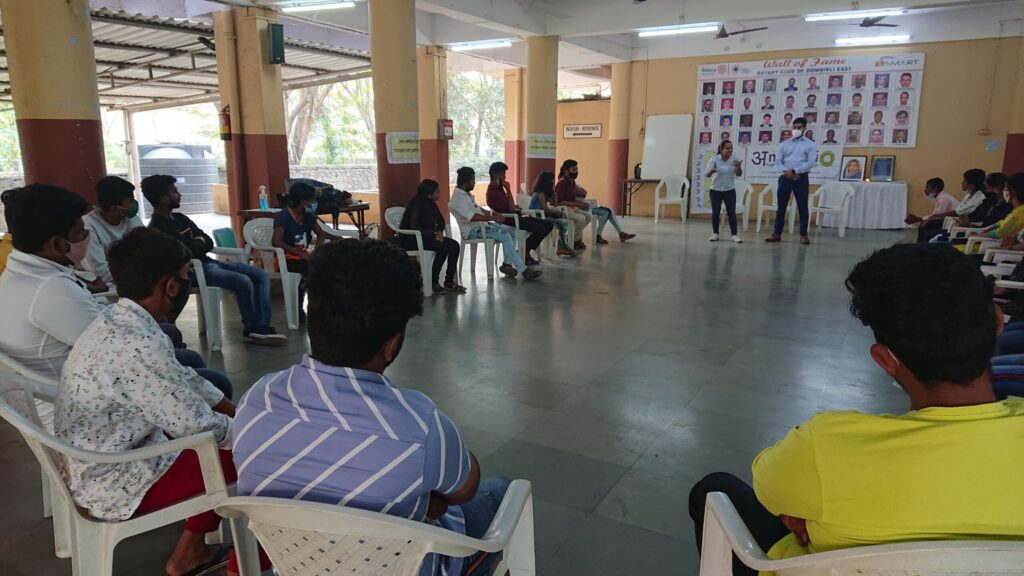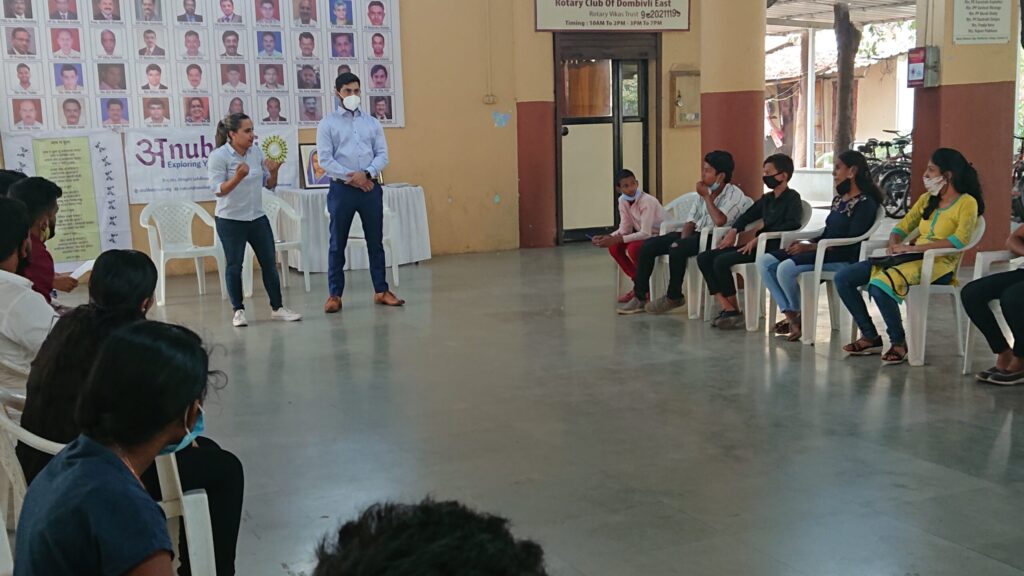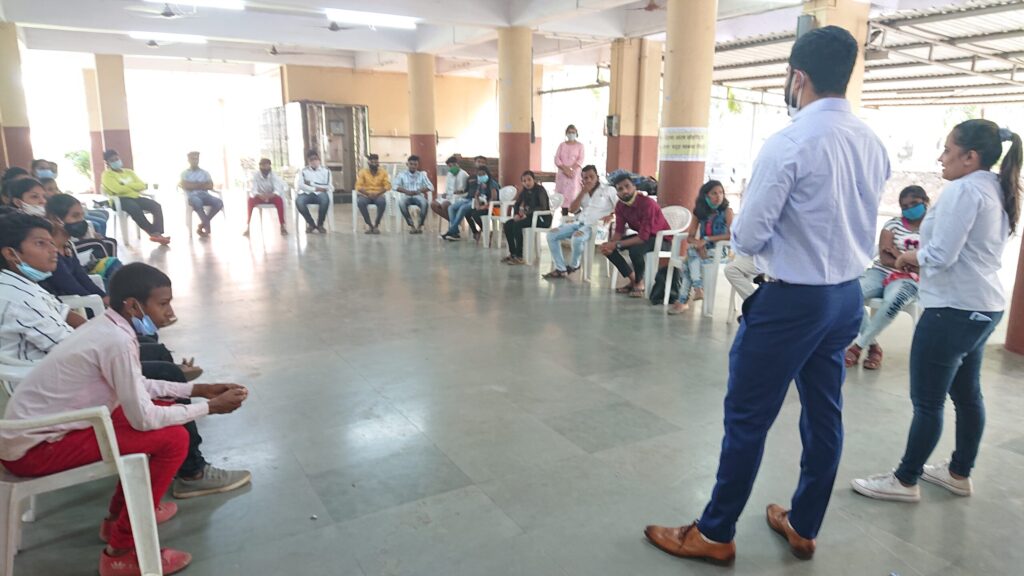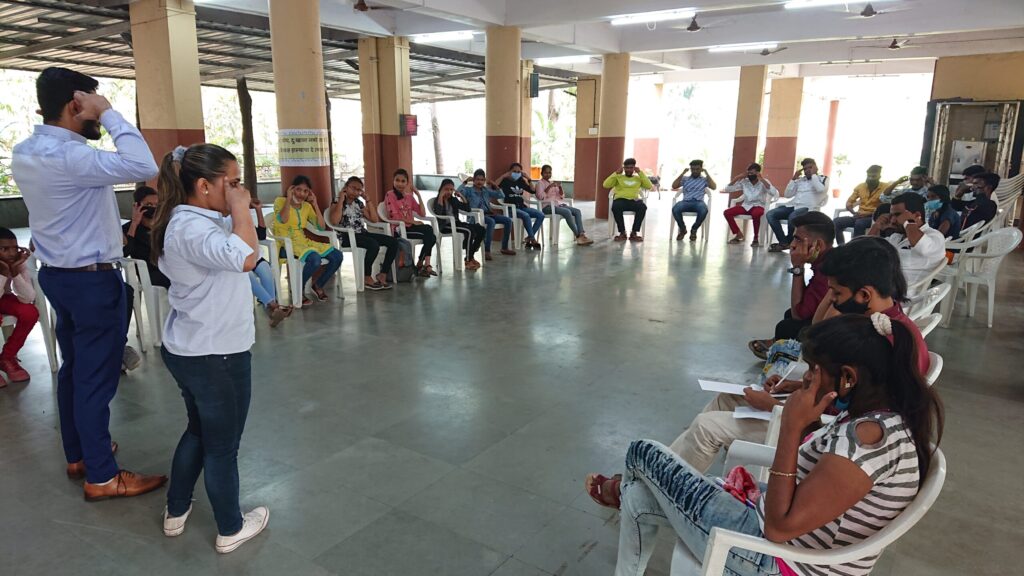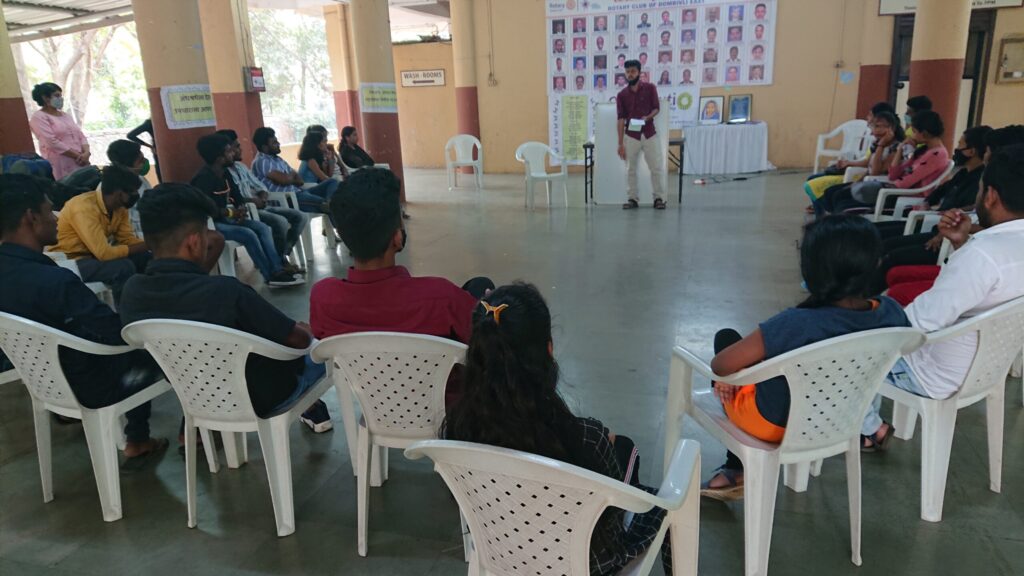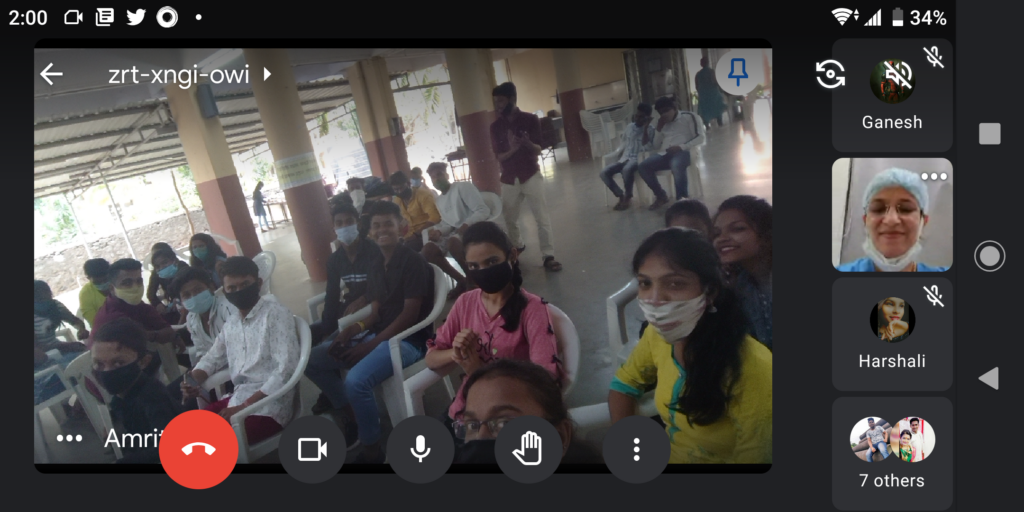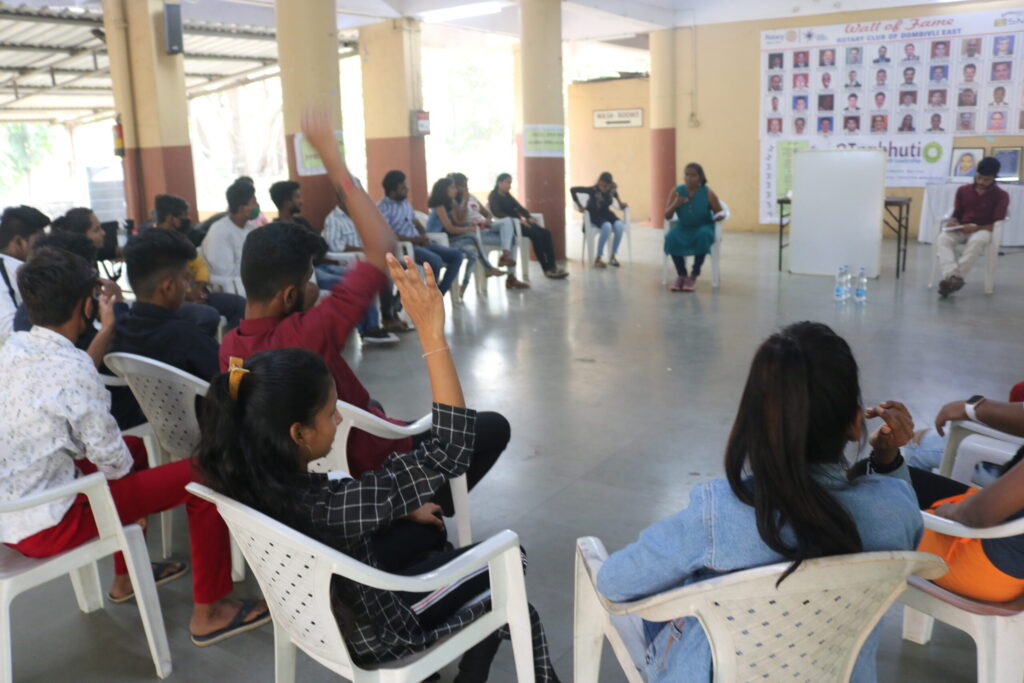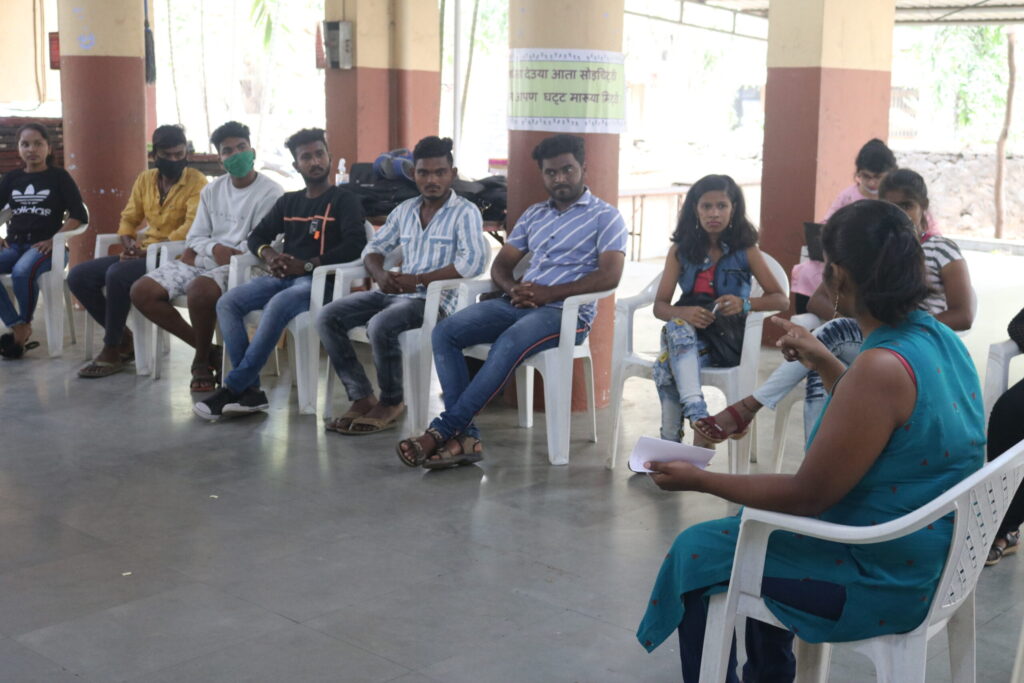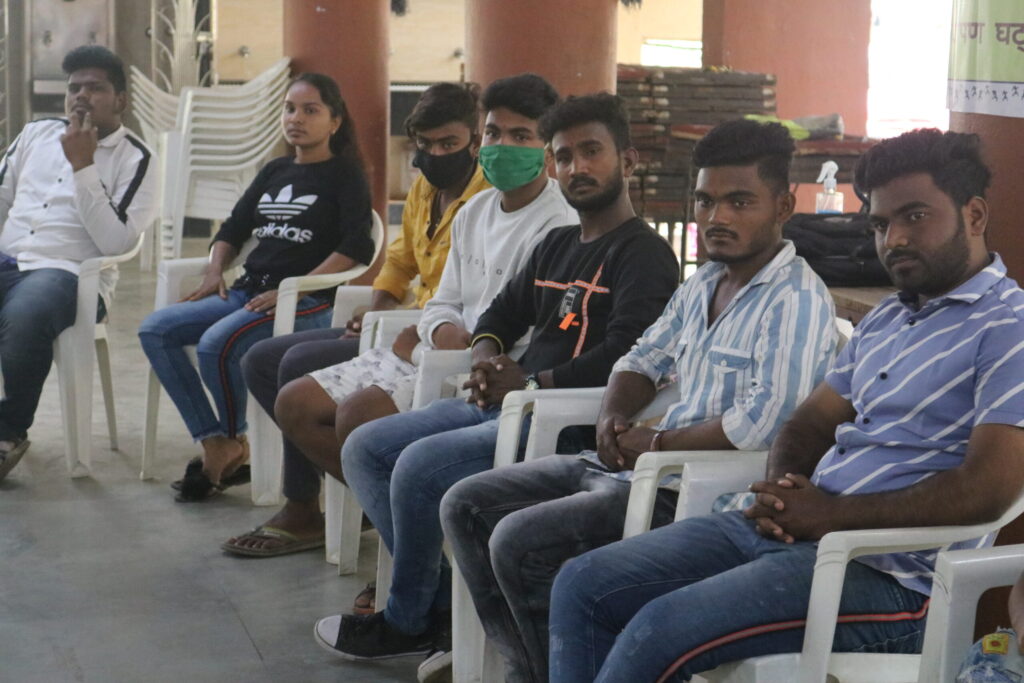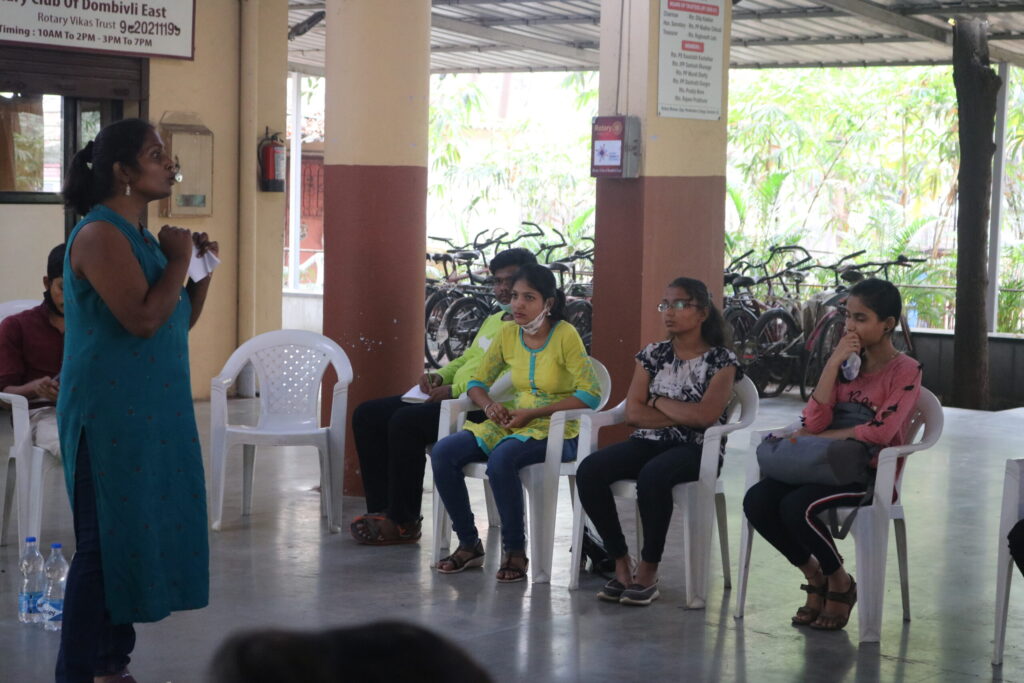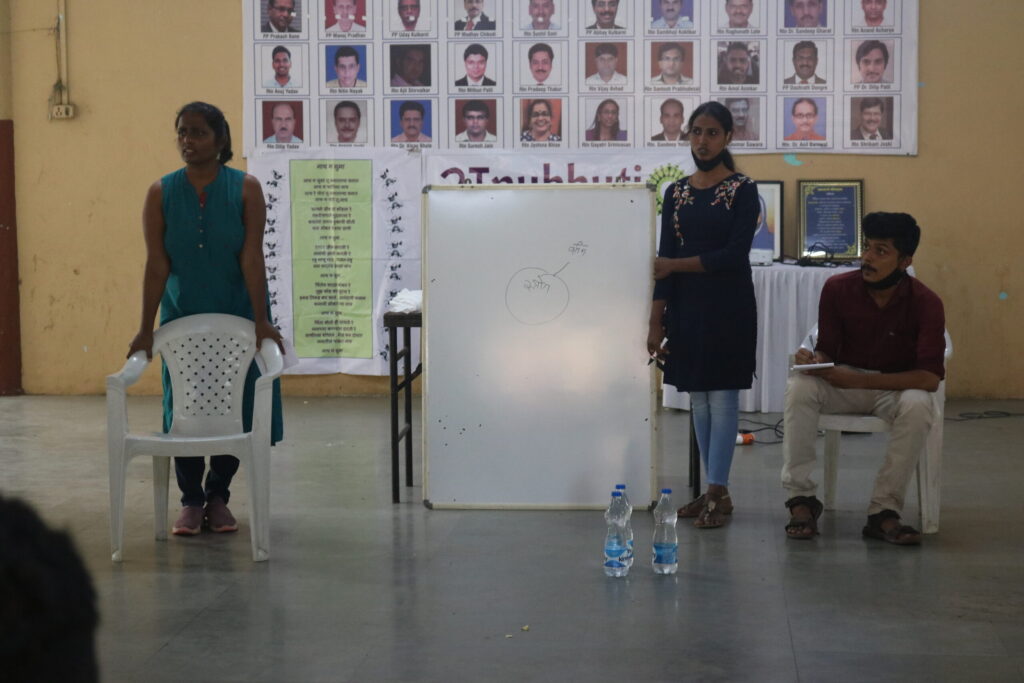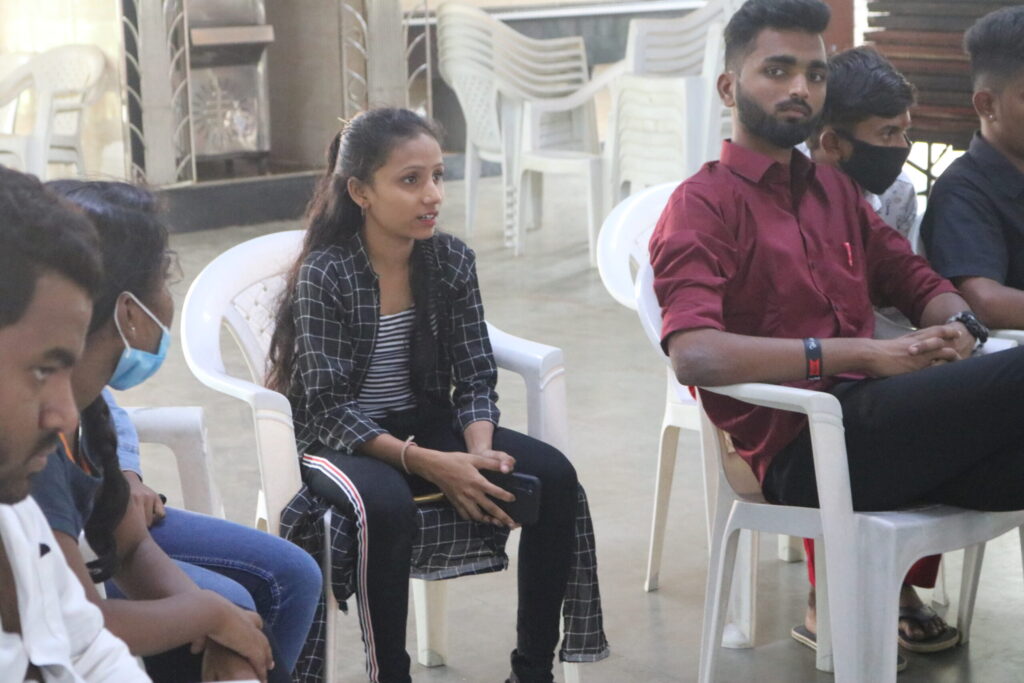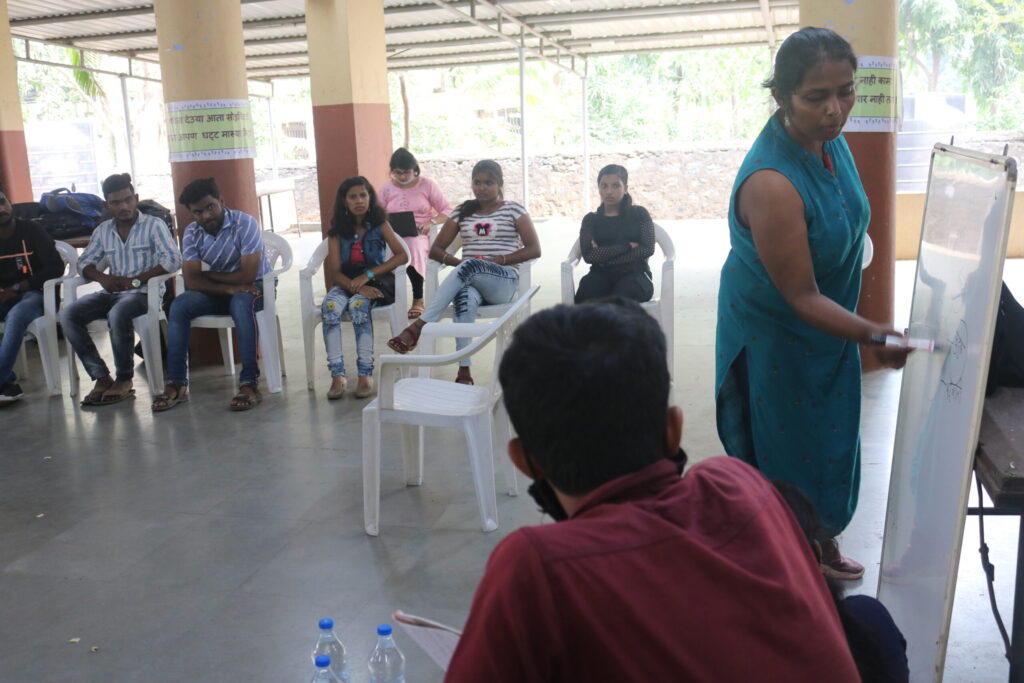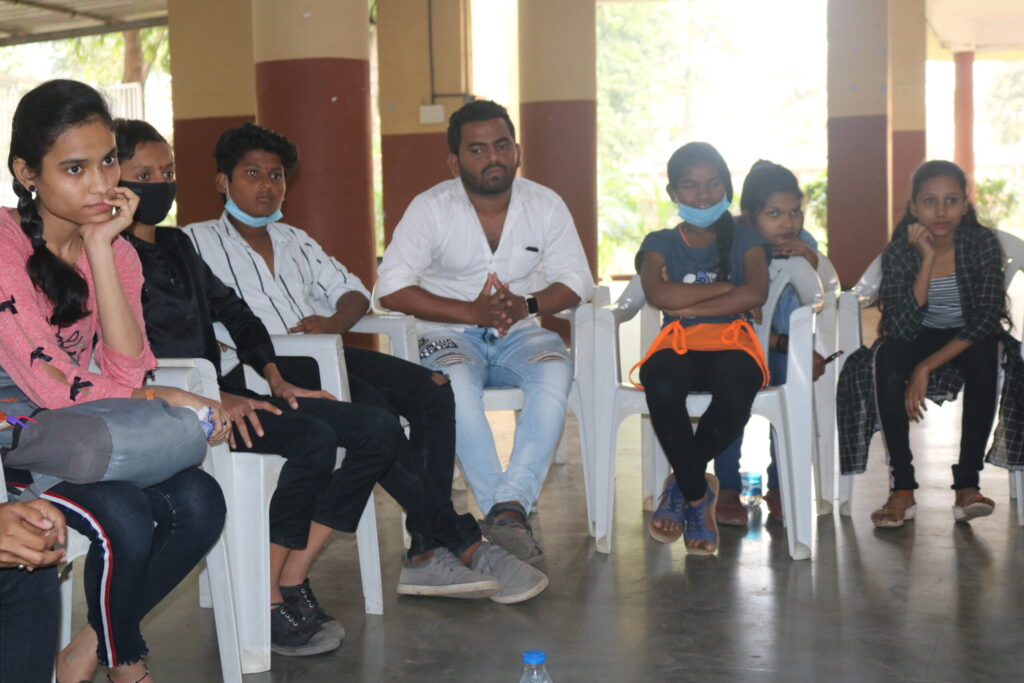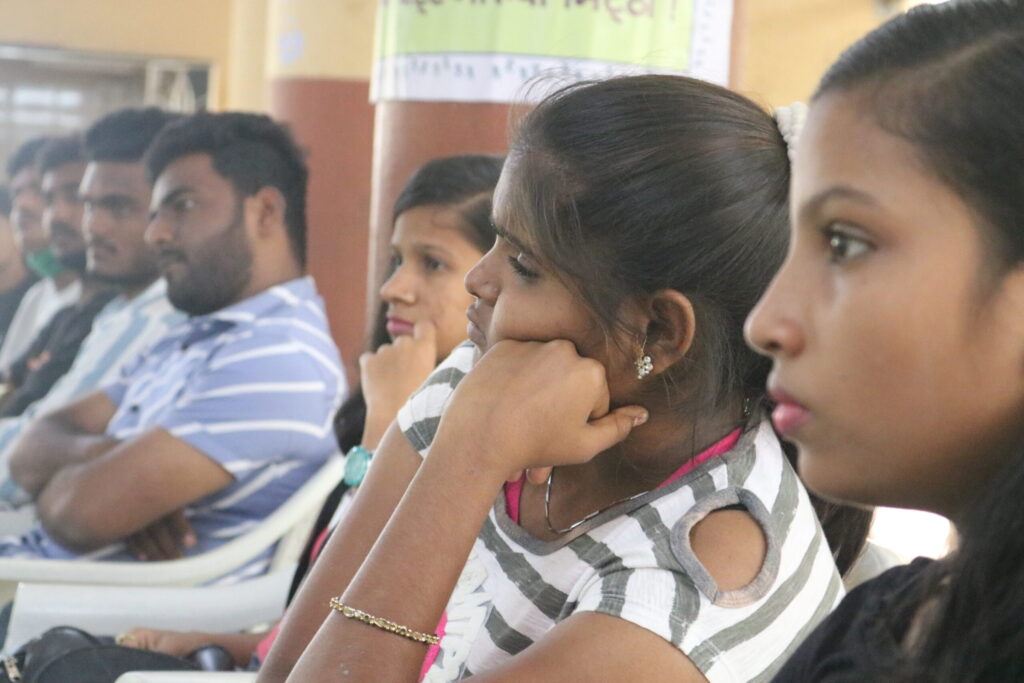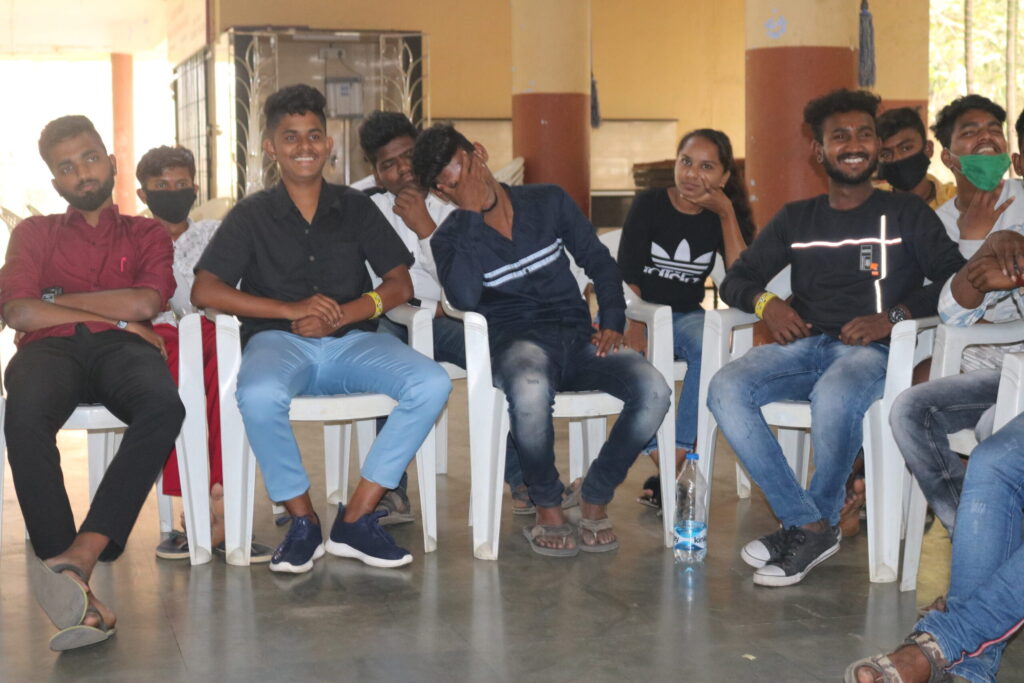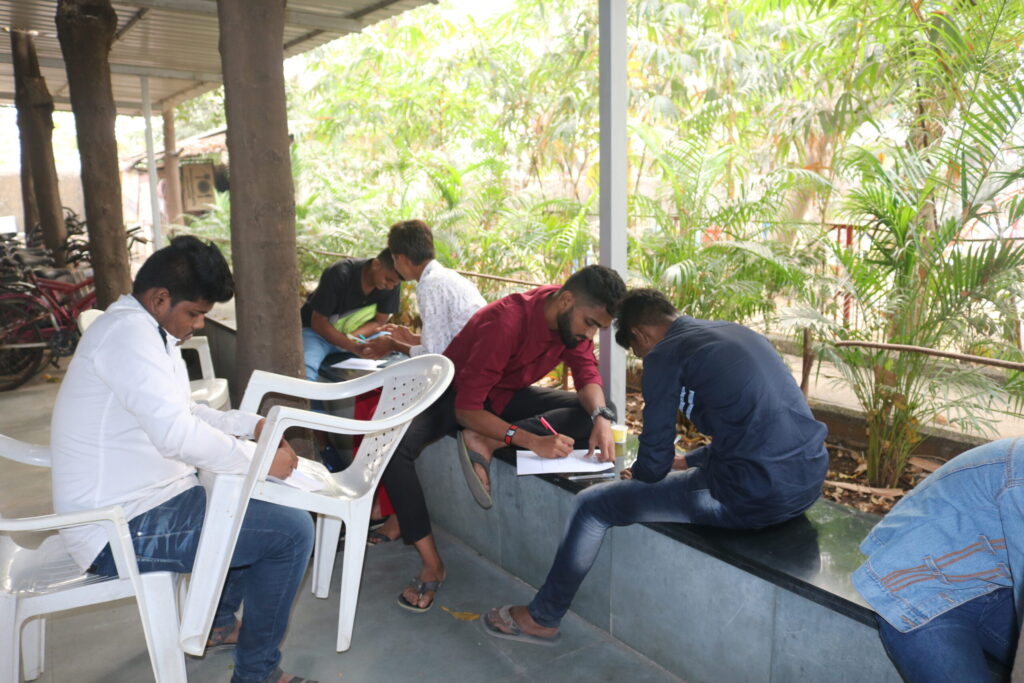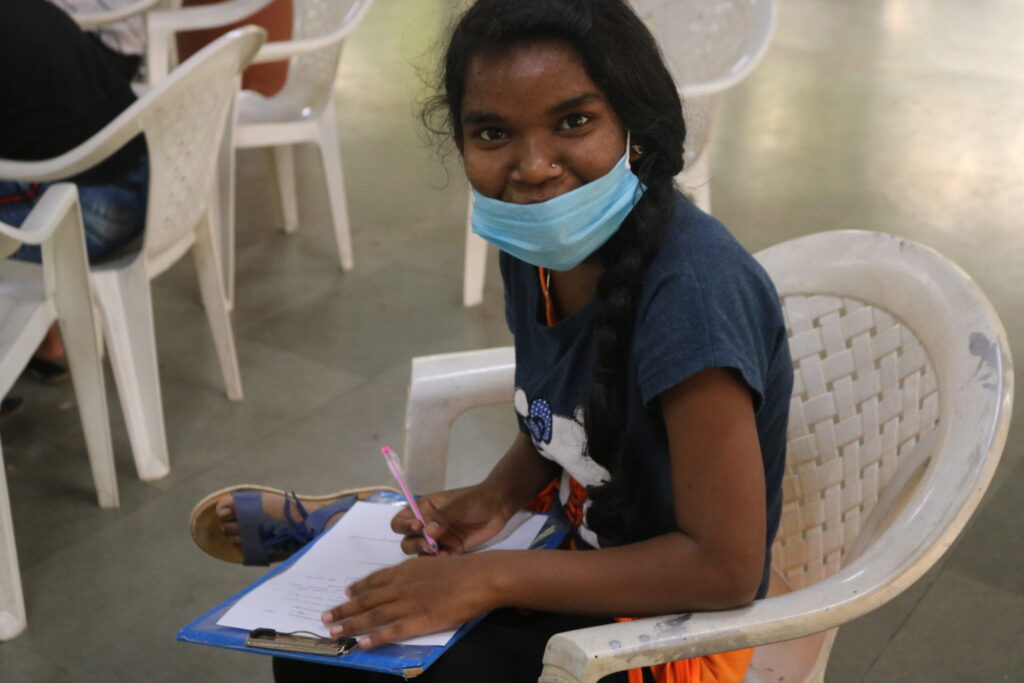Discrimination and violation of rights may happen in very different ways, especially in the Indian society where diversity and social hierarchies prevail. Often the discrimination happens against a group, sect or community – like women, dalits, adivasis, NT-DNTs etc.
While individual self defence techniques may come in use to fight individual attacks, these in a context of social, systemic and structural kinds of violence, are not enough. Also, teaching only the commonly taught self-defense techniques might be ableist; it assumes that all individuals enjoy similar physical, mental, social and political privileges. Therefore, individuals and groups must be empowered to face, tackle, deal with and recover from social violence.
With this idea in mind, Anubhuti held a workshop on “Collective Self Defense” with youth of Kolegaon and Ambernath Circus Ground, on occasion of Savitribai Phule Jayanti on 2nd January. The occasion was significant because Savitribai Phule is an icon of women-led change who had to face a lot of social abuse and violence for her pioneering ways, and she triumphed.
Firstly, Martial Arts experts, Poorva Matthew and Ashutosh Lokare of the Victoria Judo Club of Dombivli, started with the basics of Self Defence techniques, they demonstrated easy tactics to protect oneself from day to day harassment. Young girls and boys asked their doubts regarding how they can be more attentive towards harassment that happens in public spaces, during transportation etc. The resource persons also emphasized that physical response is not to be always used, and only in self-defense. For eg. especially in crowded areas where the bad intentions cannot be evidently known and where there are other people one can ask help from, we can respond verbally to let the people around know that we feel uncomfortable.
Later on, Dr. Swati Gadgil was invited to interact with the youth virtually. She covered the medical aspects of sexual assault and harrasment. She shared some real life cases about her patients who were victims of such crimes. Information was shared on what to be medically aware of in case of any physical or sexual injuries. Youth asked many questions ranging from care to be taken after rape or other assaults, to how they can support a victim for their mental health.
Anubhuti’s founder, director Deepa Pawar then trained the youth on collective self defence. Through her talk and discussion, she covered the psychological aspect. Making young girls and women mentally strong to face and deal with past sexual assaults and be prepared to tackle future attempts, is the need of the hour. She discussed how in the majority of attacks, especially for girls and youth of marginalized communities, it is not an individual assault but a social assault – including mob violence. In such cases individual self defense is of little use, and can worsen the situation.
The importance of collective self defense, of mobilizing support and being ready to stand in support was discussed in detail.
It was discussed how every single place including homes, religious places, and even NGOs can be places of assault – so to be aware and not believe in anything or anyone superstitiously. The meaning of sexual assault was also discussed – many a times it is thought to be only very severe attacks like rape, but sexual violence can mean everything from a look to words to manipulation to unwanted romantic overtures; it was reiterated that laws like POSH Act 2013 interpret sexual harassment very widely.
“I take with me that we need to double and treble our numbers. If we are 16 in number today, tomorrow we should be 32 and so on. Safety lies in numbers, in collectives.”
Pooja, a youth leader from Kolegaon
“I will be aware of what the women in my life are going through. My family members, female friends. That my role is to support in case of any wrongdoing they face.”
Ashok, youth leader from Ambernath circus ground
“I am going to introspect how I can improve my behaviour towards women. Maybe something that seems harmles to me is not so harmless for girls.”
Bhushan, youth leader from Kolegaon
These questions were taken up in more detail in an advanced session in Kolegaon which included older women – many of them mothers of the participant youth.

